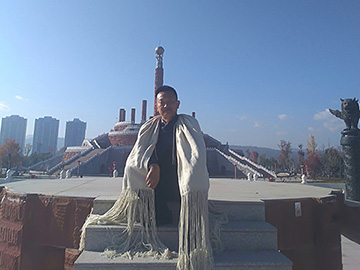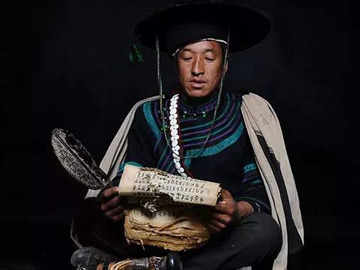Chinese people call their country "Zhongguo" that means "The Middle Country", the name "China" being of foreign origin. In the last two hundred years many theories have been exposed about the origin of the name "China" none of them completely convincing. The most popular both among the academic circles and popular beliefs is that "China" is a foreign word that referred to the Great Qin Empire, the first to rule an unified China. But the main fact to discard this theory it is the presence of the name "Cina" in some pre-Qin Indian texts.
In the last issue of the Sino- Platonic Papers, Geoff Wade (1) provides some evidence as to think that the name "China", "Cina" in Hindu texts, refers to an old Yi nationality ruled polity: The old Kingdom of Yelang.
His argumentation is supported by four facts.
1. The evidence of trade relations between southwest China and India, as stated by Zhang Qian, the Chinese explorer of the Silk Road who found Chinese textiles in Afghanistan.
2. The historical tests that point to Yelang Kingdom as one of the most powerful polities in southwest China in the centuries before Common Era.
3. The possible phonologic evolution of the present Yelang name, from Jialang, Jianang. Not far from this Hindu "Cina."
4. The denomination of Yelang Kingdom as Zina in some Yi minority historic texts recently published.
Besides give light to one of the mysteries of the studies related to China, Wade's article is a good remind of the importance of study aspects of the culture of the China minorities to understand the past culture and history of proper China.
Geoff Wade.- The Polity of Yelang and the Origins of the Name 'China". SINO-PLATONIC PAPERS. Number 188 May, 2009





